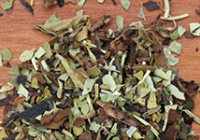Nutrient Rich Foods for Long-Term Health
By Peg Doyle, MEd, CHHC, Wellness and You

Food is an intrinsic component of long-term health and well-being. As we age, food gains even greater significance in shaping health outcomes. Read on and join us for our October 5th BioBites to learn more about foods, nutrients, and the Five Pillars of Health with Peg Doyle, Owner of Wellness and You in Westwood, MA. To register, visit bit.ly/oct5biobites
When it comes to nutrition, there are no magic bullets. There are foods that are high in nutrients, like pomegranate, kale, mushrooms and sea vegetables. But these foods alone cannot compensate for a diet lacking in essential nutrients. If these are among the only nutritious foods you eat and the rest of your intake consists of highly processed, low-quality foods – well, that just won’t cut it.
Quality nourishment is essential for good health; and after age 50, it becomes crucial. In fact, it may be the most important factor in keeping your body healthy for the rest of your life. And while you may be able to maintain good health while also enjoying sweets and highly processed foods in your early years; as you grow older, those foods contribute disproportionately to negative health outcomes and must be limited. Instead, consider how you might constantly replenish your body’s nutrient bank.
After age 50, muscle and bone loss occurs if you are not proactive in preventing it. And often that loss sets in earlier, with gradual decline beginning after age 35. However, much of the loss that can be observed in older populations can be prevented by eating healthy and staying physically active. Maintaining muscle mass prevents midlife weight gain, as well. Each pound of muscle burns 38 calories of energy per day, while each pound of fat burns only 9 calories of energy per day. Loss of muscle mass changes the ratio of muscle to fat in the body; and unless you eat less, you will gain weight. And muscle also keeps us safe as we age. Strong muscles are needed to maintain proper balance and allow us to react and recover when we stumble or trip.
When it comes to bone health, we frequently hear about calcium and its importance for bones – but calcium is not the only nutrient that healthy bones need. Foods rich in Vitamin D and magnesium are equally important, along with quality sources of protein, vegetables and fruit. Calcium is the hard matter on the outside of bones; bone marrow that lies within the bone produces the body’s blood cells. Red blood cells carry oxygen through the body, and white blood cells fight infection. Given the complexity of bones and their integral role in overall health, you cannot expect a daily calcium supplement or eating a yogurt each day to lead to healthy bones. Like muscles, bones are healthiest when our diet is filled with nutrients and we bear weight through activities like walking, jumping, or lifting.
Consider the following short list of foods to include in your diet to help ensure health as you age. As you read through the list, observe that it is packed with variety in color, flavor and nutrients – and remember: no one food can do it all.
|












This Post Has One Comment